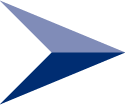Major Mark Haasdijk graduated from the Netherlands Naval Academy in 2005, following a year-long exchange program at Utrecht University studying international law. From 2005-2009 Haasdijk served as a platoon commander in various units (infantry, anti-tank, and recon), was deployed to Africa, and specialized as a Mountain Leader. Between 2009-2015 he was a company XO, battalion ops officer, Mountain & Arctic Warfare SME, and Fire Support Team leader. During this time, he prepared a unit for deployment to Afghanistan and another tour to Africa with a Special Operations Task Group. After returning, Haasdijk served as the Operations Officer and Chief of Staff of the 1st Marine Combat Group and completed his MSc in Management at the University of Amsterdam. In 2018, he transitioned to the Maritime Department of Defense Planning and Capability Development at the Ministry of Defense. While at the ministry, he coordinated several innovation and renewal programs for the NLD Navy and Marine Corps. A year before going to NPS, he was involved in the Future Force Design of the Netherlands Marine Corps. Haasdijk is currently pursuing a master’s degree in Defense Analysis at the Naval Postgraduate School. After completing his studies, he will assume the role of senior policy advisor in the office of the Defense Secretary General in the Netherlands.
The vast knowledge and insights of fellow students and faculty has been the most impactful part of my time at NPS. Picking others' brains and learning from different perspectives is invaluable. Next to that, it has been an excellent opportunity and experience to enjoy two years in the U.S. with my family.
It has not changed my approach to leadership per se. Learning and leading are different things. Nevertheless, my experience at NPS has shown different scales of organizing and leadership than I was used to in the Netherlands. In addition, being familiar with even more non-European, perspectives on defense, security, and international relations provides a baseline for future roles and relations.
In my opinion, the opportunity to invest in our Marine Corps officers by attending NPS is incomparable to following the Dutch program. Building an international network, familiarizing myself with the U.S. Marine Corps through attending the USMC Command & Staff program, and getting an MS in Defense Analysis has been a great experience.
Interacting with fellow students and faculty is the most important ‘freebie’ of studying at NPS. It is all about perspectives, and you get those for free. These insights provide a deeper meaning and understanding next to the academic awareness you get from reading scholarly journals.
It was a follow-up of a research program I coordinated in the Netherlands in 2019. Its focus was twofold, operationalizing unmanned autonomous swarms and controlling the swarm by the existing battlespace management system. After decades of research, autonomous unmanned swarming is still experimental. My research considered ‘why’ from an Artificial Intelligence perspective. Some of the main technical challenges show that the concept of swarms differs entirely from operating a single drone. For instance, there is no human-drone interaction but a human-swarm interaction, which is far more complex and demanding. One of the ideas is that the human needs to be cognitively integrated into the swarm to enable bi-directional communication.
Too much research is conducted in lab environments on too many swarm applications. There needs to be more focus. Stop what does not deliver, like trying to operationalize Lethal Autonomous Weapon Systems with its ethical dilemmas. Creating a non-ethical use case and dedicated operational unit could improve future research. Nearly all technical challenges are based on AI. Working on the interaction of AI systems in swarms is the true challenge and requires sophisticated AI models to train and use with actual units. Not only does AI need training, but so does its system, including operational units and its workforce.
My experience has informed the research on the potential swarm utilization in littoral environments. Having planned, prepared, and executed littoral operations up to battalion-sized units creates awareness of what works and fits regarding our Marine Corps units. It created boundary conditions for my research and gave a focus since the user requirement is well known. Next to that, my experience at the Ministry of Defense also created insights into navigating the process to gain support for ideas. Usually, it is not about convincing fellow Marines…
As a Defense Analysis student, pursuing many areas of interest is possible. Behavioral Sciences is one of those. My thesis research focuses on mental models at the individual, group/ team, and organizational levels. At every level, these create shortcuts that enable unconscious or mindless responses to events. Sometimes good, sometimes bad. Not being aware of those automated processes often leads to flawed decisions. The I.D.E.A. model ensures introspection and engaging others to avoid such pitfalls. Although fellow students did not influence this research, you can find proof of differing models in diverse backgrounds related to their specific knowledge and experience. However, these models are mainly based on cognitive abilities rather than culture.
